Disaster strikes in any moment we less expect it and sometimes showing no signs at all. If disaster happens and our life or anyone in the family is in danger, do you exactly know what to do? Can we avoid dangers?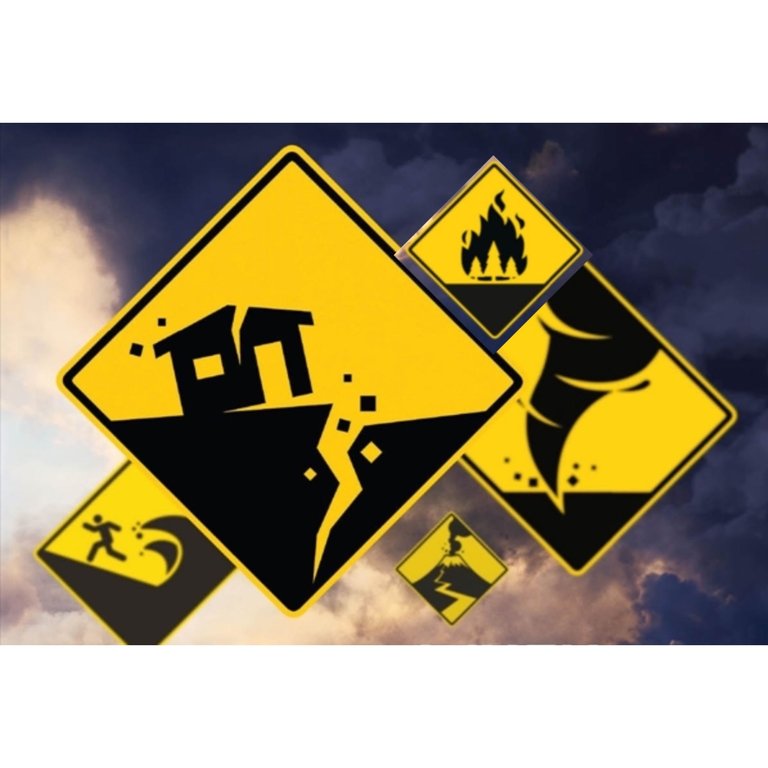
Typhoon, storm surge, earthquake, terrorist attack, landslides/ erosion, are just some terms we often see appearing on headlines that is happening. Watching about the disaster is really one thing that melts our heart and causes mixed emotions- from fear that it might happen to us, to pity to those affected. And of course it is another thing to live through one.
NO ONE is immune to disaster. No one is 100% sure that he will survive when disaster strikes, because some who are well trained on disaster safety measures had lost their lives. What can we do then? We have to prepare things and ourselves, and it is the most important key for survival. What does preparation involve?
- Mental preparedness. No one is safe when disaster happens. Don't be too calm, acknowledge the fact that everyone is potentially at risk and you can no longer prepare when disaster strikes.
- Be updated about the disaster that may strikes in your place. Make a location map. It is wise to know the construction of your home and your location. Know the evacuation centers.
- Make a list of phone numbers to be contacted in case disaster happens.
- Prepare emergency kit/bag and go bag. Water, food, first aid kit, back-up phone, battery, flashlight, radio (battery or windup), and spare batteries, whistle to signal for help, pocket tool set, waterproof matches, dust masks, waterproof tape, and plastic sheeting for shelter, toothbrushes, soap, towels, special-needs items for seniors or the disabled, waterproof container with needed medication, copies of prescriptions, and other important documents, list of emergency contacts and meeting places and a local map, credit cards and cash
- Discuss with family members, make demonstration or rehearsal of escape plan. Everyone in the family should know what to do including children. Know the exits in all places you usualy go. Set-up meeting place. Familiarize everything including all access to the meeting place.
- Plan how you could help others.
- During disaster ACT QUICKLY & DON'T DELAY
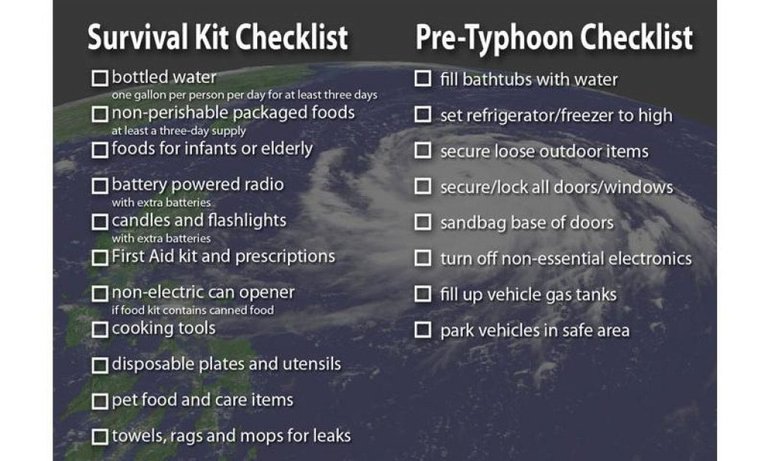
Earthquake. In an Earthquake Preparedness Guide on its website, the Philippine Institute of Volcanology & Seismology (PHIVOLCS) lists the things one should do before, during and after earthquake. Phivolcs advises those who are already within a structurally sound building or home to stay indoors. In particular, the agency cites the following tips:
- If possible, quickly open the door for exit
- Duck under a sturdy desk or table, and hold on to it, or protect your head with your arms
- Stay away from glass windows, shelves, cabinets, and other heavy objects
- Beware of falling objects. Be alert and keep your eyes open
Meanwhile, those who are outside should move to an open area, and follow these safety measures:
- Stay away from trees, power lines, posts, and concrete structures
- Move away from steep slopes which may be affected by landslides
- If near the shore and feeling an earthquake, especially a strong one, quickly move to higher grounds in anticipation of possible tsunamis
Those who are in a moving vehicle should stop and get out, the agency adds: “Do not attempt to cross bridges, overpasses, or flyovers which may have been damaged.” (READ: Earthquake tips for drivers: Don't panic)
Immediately after an earthquake, Phivolcs advises affected persons to take “the fastest and safest way out of the building.” One should not use elevators, enter damaged buildings, or use telephones unless necessary, the agency says. Most of all, do not panic
Typhoon.
Tsunami or storm surge. Follow the evacuation order issued by the authorities and evacuate immediately. If the water suddenly rushes away from the shore, move quickly to higher ground. Expect more and larger waves.
Fire. Stay close to the floor, and move quickly to the nearest exit. Smoke makes it hard to see, and most fire deaths are caused by smoke inhalation. Leave behind personal items. Seconds can make the difference between life and death.
After the disaster you should acknowledge that it causes loss, there are agencies who arrange relief & helping those affected, though not everything you lost are replaced. Emotional enjury may happen and anxieties and depression may last longer.
Many will asks why it happened and some will blame God. The Bible says at Job 34:10: "It is unthinkable for the true God to act wickedly, for the Almighty to do wrong." 1 Peter 5:7 adds: "He cares for you." And it is comforting to know that God will soon bring complete justice to the earth and will right all wrongs, and no more disaster will ever happen again. -Revelation 21:4,5.
Sources:
www.jw.org
University of Batangas facebook page
Phivolcs website
Survival checklist from okinawa stripes
THANK YOU for reading my post.
Please follow me @dalethbm
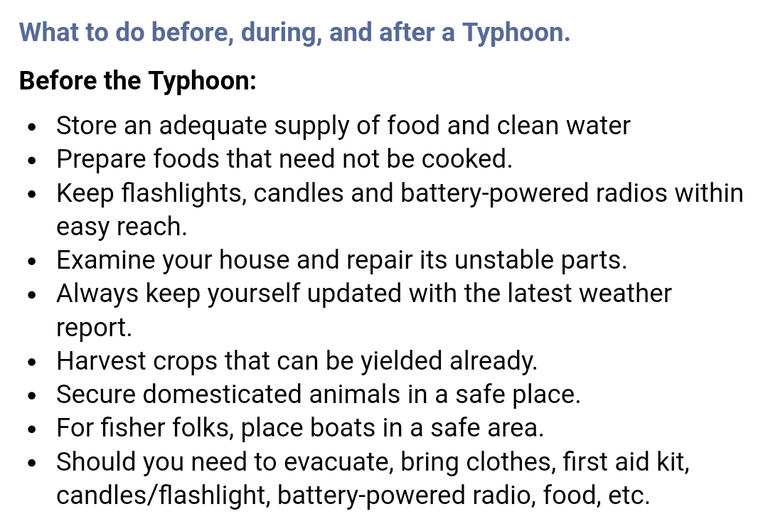
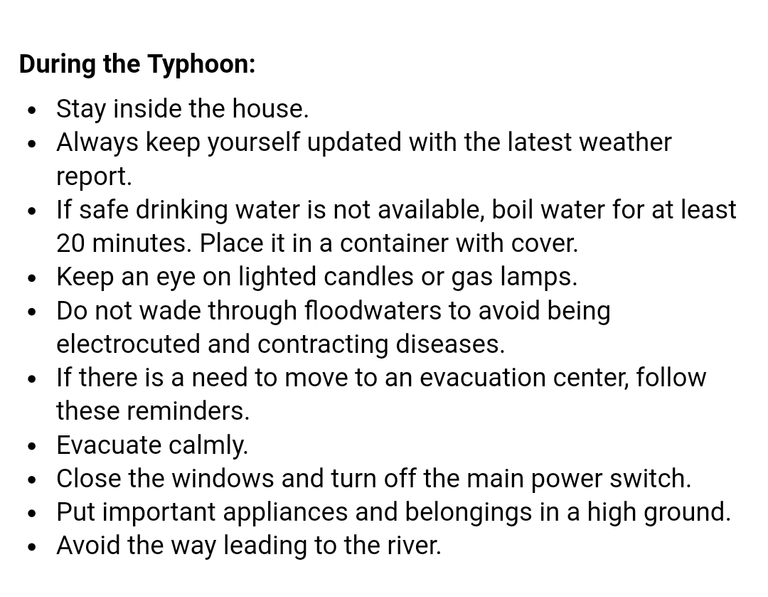
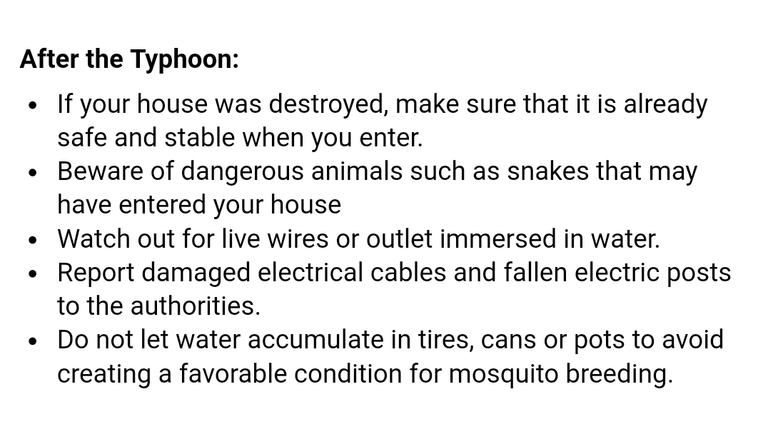 , according to Phivolcs.
, according to Phivolcs. 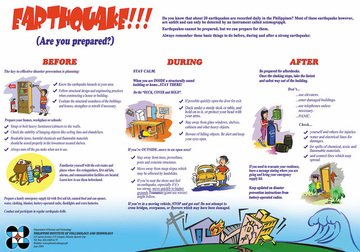
Nice post.
good